
Before she started taking Trikafta, in 2019, Jenny Livingston hoped more than anything to survive long enough to se her daughter graduate from high school.
You have experienced, in a modest way, something like it in the waning days of a bad cold, when your lungs finally expel their accumulated gunk. The rattle in your chest quiets. Your sinuses clear . You smell again: the animal sweetness of your children's hair, the metallic breeze stirring a late-summer night. Your body, which oozed and groaned under the yoke of illness, is now a perfectly humming machine. Living is easy everything is easy.
How wonderful it is to breathe, simply breathe.
Imagine, though, that you had never been able to simply breathe. Imagine that mucus-thick, copious, dark-had been accumulating since the moment you were born, thwarting air and trapping microbes to fester inside your lungs. That you spent an hour each day physically pounding the mucus out of your airways, but even then, your lung function would spiral only downward, in what amounted to a long, slow asphyxiation. This was what it once meant to be born with cystic fibrosis..
Then, in the fall of 2019, a new triple combination of drugs began making its way into the hands of people with the genetic disease. Trikafta corrects the misshapen protein that causes cystic fibrosis; this molecular tweak thins mucus in the lungs so it can be coughed up easily. In a matter of hours, patients who took it began to cough—and cough and cough and cough in what they later started calling the Purge. They hacked up at work, at home, in their car, in bed at night. It's not that they were sick; if anything, it was the opposite: They were becoming well. In the days that followed, their lungs were cleansed of a tarlike mucus, and the small tasks of daily life that had been so difficult became unthinkingly easy. They ran up the stairs. They ran after their kids. They ran 10Ks. They ran marathons.
この記事は The Atlantic の April 2024 版に掲載されています。
7 日間の Magzter GOLD 無料トライアルを開始して、何千もの厳選されたプレミアム ストーリー、9,000 以上の雑誌や新聞にアクセスしてください。
すでに購読者です ? サインイン
この記事は The Atlantic の April 2024 版に掲載されています。
7 日間の Magzter GOLD 無料トライアルを開始して、何千もの厳選されたプレミアム ストーリー、9,000 以上の雑誌や新聞にアクセスしてください。
すでに購読者です? サインイン

The Fraudulent Science of Success
Business schools are in the grips of a scandal that threatens to undermine their most influential research-and the credibility of an entire field.

Walk on Air Against Your Better Judgment
What Seamus Heaney gave me

The Dark Origins of Impressionism
How the violence and deprivation of war inspired light-filled masterpieces
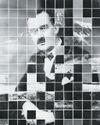
The Magic Mountain Saved My Life
When I was young and adrift, Thomas Manns novel gave me a sense of purpose. Today, its vision is startlingly relevant.
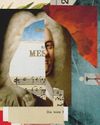
The Weirdest Hit in History
How Handel's Messiah became Western music's first classic
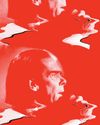
Culture Critics
Nick Cave Wants to Be Good \"I was just a nasty little guy.\"
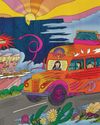
ONE FOR THE ROAD
What I ate growing up with the Grateful Dead

Teaching Lucy
She was a superstar of American education. Then she was blamed for the country's literacy crisis. Can Lucy Calkins reclaim her good name?
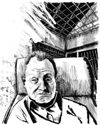
A BOXER ON DEATH ROW
Iwao Hakamada spent an unprecedented five decades awaiting execution. Each day he woke up unsure whether it would be his last.
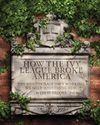
HOW THE IVY LEAGUE BROKE AMERICA
THE MERITOCRACY ISN'T WORKING. WE NEED SOMETHING NEW.